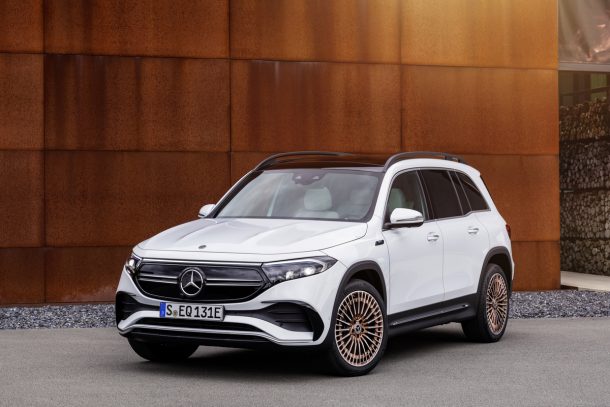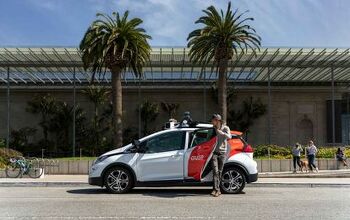California PHEV Owners Return to Gas Power
Electric vehicles are one way to carbon neutrality. Yet 20 percent of California PHEV owners have gone back to gas-powered vehicles.
Published in Nature Energy on April 26th by the Institute of Transportation Studies at the University of California, Davis, the study found that PHEV buyers in California were abandoning the technology at a rate of 20 percent, as were 18 percent of battery electric vehicle (BEV) owners.
According to the researchers, dissatisfaction with charging convenience, and not having level two, 240-volt charging at home, were the primary reasons.
The National Center for Sustainable Transportation (NCST) funded the analysis. The US Department of Transportation supported the University Transportation Centers program. The California Air Resources Board (CARB) paid for the questionnaire portion. They are one and the same agency that sniffs tailpipes for excess emissions.
Researchers Scott Hardman and Gil Tal had a premise: In order for EVs to be successful, it meant buyers needed to repurchase EVs. Abandoning the technology would prevent EVs from reaching 100 percent market share. They methodically surveyed California households who had purchased PEVs between 2012=2018. EVs’ success relied on adopters continuing to purchase EVs. 18 percent of EV owners and 20 percent of PHEVs were dissatisfied enough to return to gas-powered vehicles.
As noted by cnet.com, the problem centers around at-home charging. Level 2, 240-volt charging, or a lack thereof, is what led to discontent. Without the ability to recharge your EV at home, all the benefits of EV ownership go out the window. The lack of fast public chargers is a problem. Chargers that aren’t fast enough in comparison to refueling your car also diminished the EV experience.
Half the owners who bought another EV had Level 2 charging access, yet 30 percent who had access to Level 2 charging still decided against buying another EV. Their conclusion? It was pretty much even whether California PHEV owners decided to buy another EV or not. As the technology improves and charging installation is bundled with the purchase of an EV, it should help the green movement grow.
[Image: Mercedes-Benz]
With a father who owned a dealership, I literally grew up in the business. After college, I worked for GM, Nissan and Mazda, writing articles for automotive enthusiast magazines as a side gig. I discovered you could make a living selling ad space at Four Wheeler magazine, before I moved on to selling TV for the National Hot Rod Association. After that, I started Roadhouse, a marketing, advertising and PR firm dedicated to the automotive, outdoor/apparel, and entertainment industries. Through the years, I continued writing, shooting, and editing. It keep things interesting.
More by Jason R. Sakurai
Latest Car Reviews
Read moreLatest Product Reviews
Read moreRecent Comments
- ToolGuy I do like the fuel economy of a 6-cylinder engine. 😉
- Carson D I'd go with the RAV4. It will last forever, and someone will pay you for it if you ever lose your survival instincts.
- THX1136 A less expensive EV would make it more attractive. For the record, I've never purchased a brand new vehicle as I have never been able to afford anything but used. I think the same would apply to an EV. I also tend to keep a vehicle way longer than most folks do - 10+ years. If there was a more affordable one right now then other things come to bear. There are currently no chargers in my immediate area (town of 16K). I don't know if I can afford to install the necessary electrical service to put one in my car port right now either. Other than all that, I would want to buy what I like from a cosmetic standpoint. That would be a Charger EV which, right now, doesn't exist and I couldn't afford anyway. I would not buy an EV just to be buying an EV. Nothing against them either. Most of my constraints are purely financial being 71 with a disabled wife and on a fixed income.
- ToolGuy Two more thoughts, ok three:a) Will this affordable EV have expressive C/D pillars, detailing on the rocker panels and many many things happening around the headlamps? Asking for a friend.b) Will this affordable EV have interior soft touch plastics and materials lifted directly from a European luxury sedan? Because if it does not, the automotive journalists are going to mention it and that will definitely spoil my purchase decision.c) Whatever the nominal range is, I need it to be 2 miles more, otherwise no deal. (+2 rule is iterative)
- Zerofoo No.My wife has worked from home for a decade and I have worked from home post-covid. My commute is a drive back and forth to the airport a few times a year. My every-day predictable commute has gone away and so has my need for a charge at home commuter car.During my most recent trip I rented a PHEV. Avis didn't bother to charge it, and my newly renovated hotel does not have chargers on the property. I'm not sure why rental fleet buyers buy plug-in vehicles.Charging infrastructure is a chicken and egg problem that will not be solved any time soon.


































Comments
Join the conversation
I bought one just to get on the carpool lane for free, and now that deal is over I am no longer going to buy an EV / plug in. If the price is right I might consider in the future but at the moment I like my gas car better.
I have a PHEV, and my next car is going to be a gasser, because I want to do some track driving. But, I'm certainly an edge case. I may keep the PHEV to use as an additional car, because it's been such a good car and I won't get that much money for it. If I didn't want to drive on the track, I'm not sure what I'd get. EVing around town is so much nicer than driving a gasoline powered car, it would be hard to give that up, but I don't see an EV that I'd really like. Since what I have has been so reliable and cheap to run, I'd probably just keep it for a few years and see if something else I really liked came along.